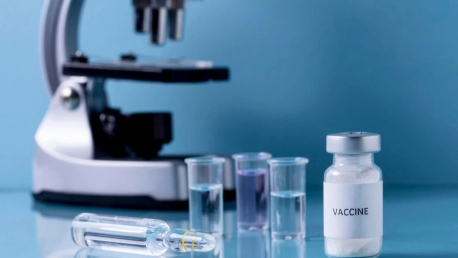As environmental issues become ever more pressing, pharmaceutical giant Boehringer Ingelheim is leading a green revolution within its industry, with a special focus on sustainable vaccine production. The company’s innovative initiatives extend well beyond the finished vaccine. Boehringer Ingelheim’s commitment reshapes manufacturing processes from the ground up, setting new benchmarks for environmental responsibility. This shift towards sustainability reflects a comprehensive strategy that permeates each phase of vaccine creation. Boehringer Ingelheim’s efforts exemplify how the pharmaceutical industry can adopt more eco-friendly practices while continuing to produce crucial medicines. By championing this cause, Boehringer Ingelheim not only contributes to global health but also plays a significant role in preserving the environment for future generations.
Bioprocess Technology Transformation
The company’s dedication to eco-friendly methods is anchored by its Bioprocess Technology Shift Program, led by Bernd Eichenmüller and Noël Detraz. Launched in 2017, this ambitious agenda is redefining production protocols to ensure a lighter ecological footprint. At the heart of this initiative is the commitment to miniaturize production units, which allows for the manufacturing of smaller, controlled batches using predefined ingredients. This focus on efficiency significantly slashes the consumption of water and reduces waste and carbon emissions. Through these streamlined processes, Boehringer Ingelheim illustrates that environmental responsibility does not just coexist with vaccine production—it enhances it.The shift is palpable in their move from traditional plastic roller bottles to cutting-edge bioreactors that provide several environmental and operational benefits. These cutting-edge vessels assure lower rates of contamination and bolster the robustness of the manufacturing process. Coupled with the adoption of single-use technologies, this change significantly reduces the need for energy-intensive sterilization procedures, thereby minimizing the company’s overall resource footprint. By continually seeking out and integrating such technological innovations, Boehringer Ingelheim exemplifies how a relentless pursuit of progress can yield substantial ecological dividends.
Sustainability Through Ingredient Innovation
Boehringer Ingelheim is taking a green leap in bioprocessing by ditching animal-based materials once common in cell culture for serum-free media. This sustainable shift eliminates the risk of viral contaminants and reduces antibiotic use since serum-free cultures promote a cleaner and more regulated growth environment. This change echoes their commitment to the environment, animal rights, and supply chain resilience.As they carefully tread the path between innovation and eco-consciousness, the company is navigating through the regulatory maze to ensure greener production. The Bioprocess Technology Shift Program is at the forefront, actively improving production yields and efficiency, all while keeping an eye on quality, safety, and speedier market access. This journey towards 100% sustainable manufacturing is not short, but Boehringer Ingelheim’s dedicated efforts are making significant strides without compromising their environmental and ethical principles.









